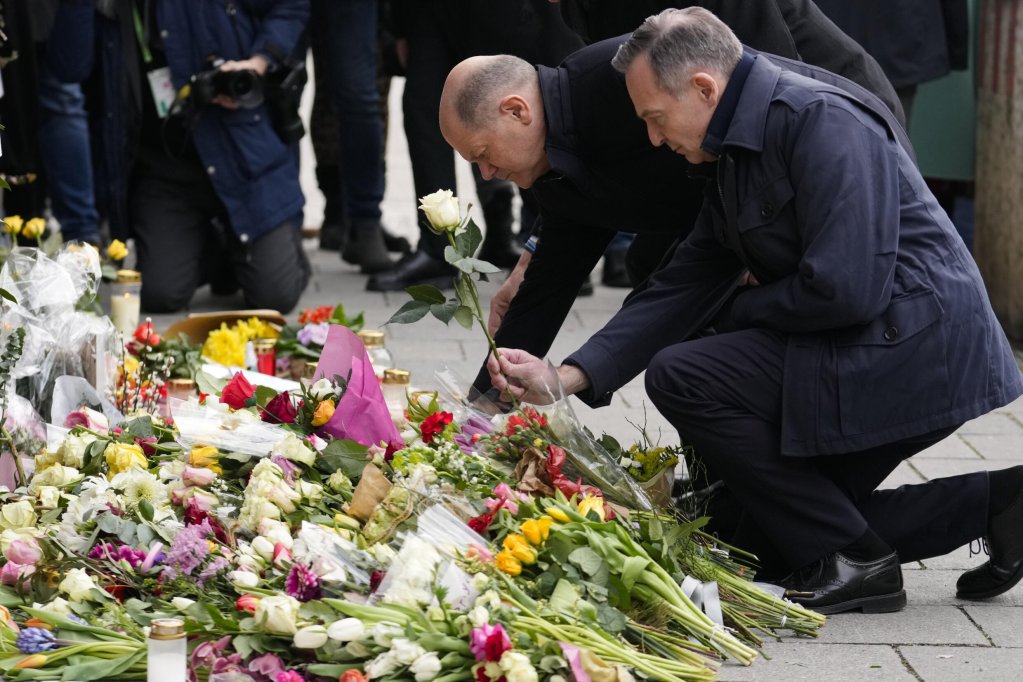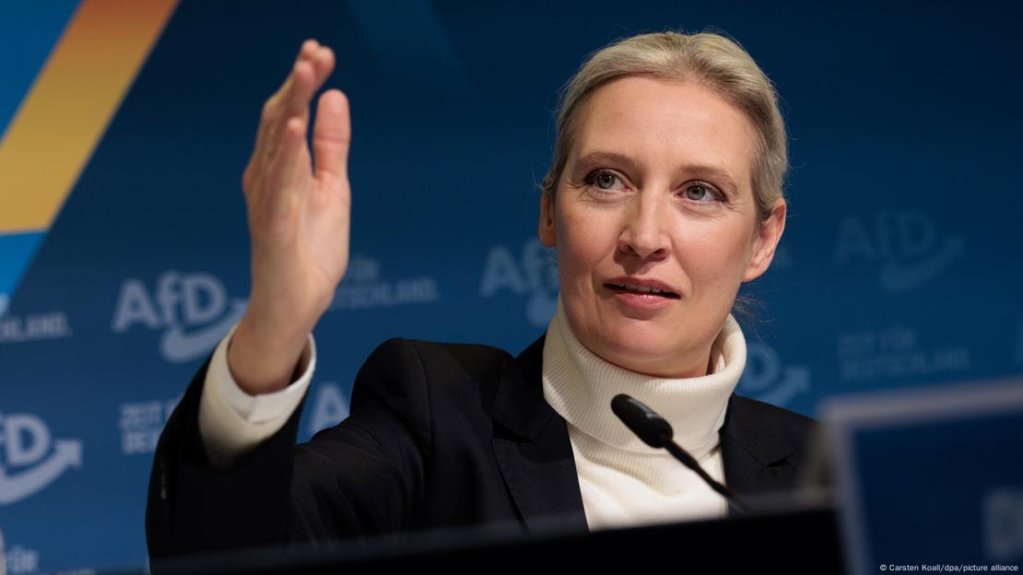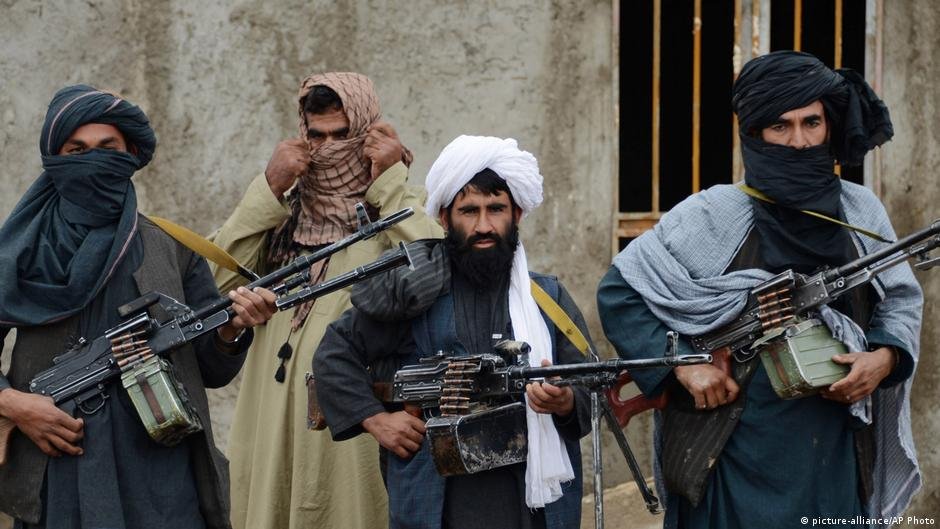Calls for Germany to start deportation flights to Afghanistan are intensifying, just days before the German election, on February 23, and less than a week after an Afghan national drove a car into a crowd in Munich, resulting in the deaths of a mother and her child. But in order for that to take place, Germany needs to be in direct contact with the Taliban, so are things likely to change?
Since the violent takeover of Afghanistan by the Taliban in August 2021, Germany's diplomatic relations with the central Asian nation have been at nearly a standstill. Like most other western countries, Germany does not recognize the Taliban diplomatically, and has until now negotiated via third parties, like Qatar, when contact is needed.
Deputy German government spokeswoman Christiane Hoffmann however said at the beginning of this week that "confidential talks" were being held between Berlin and Kabul regarding the deportation of Afghan nationals deemed to be a danger to Germany.
She also stressed that she could not share any further details.
Hoffmann emphasized that despite these sporadic exchanges between the two governments, "(t)here has been no change in the German government's stance that we do not recognize this de facto Taliban government as a legitimate government."

Five attacks by Islamists in less than a year
These comments come after the issue of deportations to Afghanistan has been floated once more in recent days.
On Saturday, an Afghan national believed to have been radicalized as an Islamist rammed a car into a crowd in Munich, southern Germany, resulting in the deaths of a mother and her two-year-old toddler. This was preceded by several deadly attacks in Aschaffenburg, Magdeburg, Solingen and Mannheim over the last year.
With Germans voting for a new government on February 23 amid a marked shift to the political right, the feasibility of conducting deportation flights of such individuals deemed to be a threat to society is once more being debated.
Last August, Germany conducted its first deportation flight to Kabul since the Taliban takeover in 2021 — however, this deportation of 28 individuals was treated as a one-off event.
With the German government rejecting diplomatic relations with the Taliban regime, it could prove difficult to send dangerous individuals back.
Read AlsoImmigration: German voters want to accept fewer refugees
Growing political will to deport
However, a change in government in Berlin at the elections could result in a rapprochement of sorts when it comes to certain bilateral relations; Alice Weidel, leader of the far-right, anti-migrant AfD (Alternative for Germany) party said that she would have no qualms in sending people back to Afghanistan even if that meant working with the Taliban.
"We will fly them out [to Afghanistan] even if that means negotiating with the Taliban," Weidel told Germany's public broadcaster ARD.
"I believe that in principle, one should accept any offer to enter a dialog. It doesn't hurt at all to have a conversation. And it's a fact that we need to part ways with delinquent Afghans here [in Germany] as quickly as possible," she added.

While Weidel's AfD is unlikely to be part of any government, with all major parties ruling out a coalition with the far-right group, they are likely to be a strong faction in opposition, with polls suggesting that at least one in five Germans is planning to vote for them.
Other parties have in the meantime echoed similar calls, with Markus Söder, head of the rightwing CSU party, demanding "weekly" deportation flights to Afghanistan after resuming talks with the Taliban.
Söder noted that in his federal state of Bavaria alone, there were nearly 2,000 Afghans who are required to leave the country, with about 200 of them regarded as serious offenders. He added on X that Germany's security should be the government's top priority.
In his post on February 16, Söder wrote: "Germany needs an immediate Afghan plan. Afghans who have been asked to leave the country need to be sent out very quickly. Germany's security is our top priority..."
Some center-left parties, however, believe that entering negotiations with the Taliban would come at too high a cost: The Taliban regime has signalled its willingness to take back deported nationals, but only if they are allowed to operate an embassy in Germany.
This would signal to the world that Germany recognizes the legitimacy of the Taliban as Afghanistan's rulers.
Mixed views of feasibility of talks
Experts outside of party politics meanwhile highlight the strengths and weaknesses of both perspectives: Migration researcher Hannes Schammann from the University of Hildesheim told Germany's public broadcaster WDR that any talks with the Taliban would only strengthen their brutal regime.
"Ultimately, we make ourselves vulnerable to blackmail if we negotiate too strongly with authoritarian regimes on migration policy," Schammann said.
But political scientist Klaus Stüwe thinks that direct contact with the Taliban to coordinate sending criminals back to the country does not necessarily have to equate to legitimizing their rule.
"This country still receives many hundreds of millions of euros in development aid from Germany. In my view, that would be a very good basis for negotiating with this terrorist regime on the subject of deportations," he told the Donaukurier regional newspaper.

Not a complete break-down of ties
A spokesman for the Federal Foreign Office in Berlin meanwhile explained that despite Germany's overall rejection of the Taliban regime in Afghanistan and the ensuing lack of full diplomatic ties, there is more than just minimum contact between the two nations.
"The claim that there is no contact with the Taliban is false. There is sporadic contact on a technical level," said the ministry spokesman, referring to the existing German liaison office in Doha, Qatar.
He added that through this office, the German government is "in contact with representatives of the de facto government" with the Taliban in Kabul, and that "colleagues" from the Federal Foreign Office also regularly travel to Afghanistan on projects that the German government continues to oversee there.
The Federal Foreign Office itself meanwhile maintains that "(w)hen the Federal Government and international partners have contacts with representatives of the de facto government authorities, the focus is on gaining access for humanitarian assistance, protecting human rights, especially the rights of women and girls, building inclusive governance and combating terrorism."
Read AlsoFact check: Deportation misinformation in Germany
with AFP, KNA, dpa
